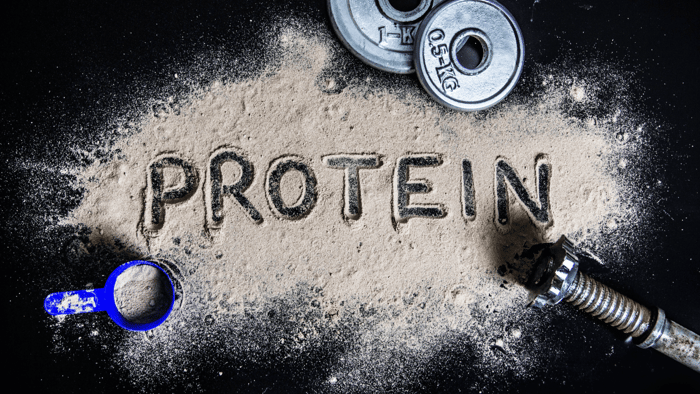How do medicinal mushrooms differ from culinary mushrooms?
Mushrooms have been used in traditional medicine for centuries, particularly in traditional Chinese medicine. Recently, there has been growing interest in the potential health benefits of certain mushrooms, leading to the development of a new category of mushrooms known as medicinal mushrooms.
So what exactly are medicinal mushrooms? Unlike culinary mushrooms, which are typically used in cooking for their flavor and texture, medicinal mushrooms are specifically grown and consumed for their potential health benefits, which can include anti-inflammatory, antioxidant, and immune-boosting properties. Some medicinal mushrooms, such as shiitake, maitake, and reishi, have also been found to have potential anti-cancer effects. Research suggests that compounds found in these mushrooms may help to stimulate the immune system and prevent the growth and spread of cancer cells.
However, while there is growing interest in the potential health benefits of medicinal mushrooms, more research is needed to fully understand their effects on the body.
Common medicinal mushrooms
Reishi, also known as Ganoderma lucidum, is a type of mushroom that has been used in traditional Chinese medicine for over 2,000 years. Often referred to as the "mushroom of immortality," it is believed to promote longevity and overall health. Reishi has a bitter taste and woody texture, so it is often consumed in supplement form as a powder, capsule, or liquid extract.
One of the key compounds found in reishi is beta-glucans, which have been shown to have immune-boosting effects. Beta-glucans are complex sugars that stimulate the activity of immune cells, such as natural killer cells and T cells, which are important for fighting off infections.
Research has also suggested that reishi may have anti-cancer effects. Some studies have found that compounds found in reishi can help to prevent the growth and spread of cancer cells by inducing apoptosis, or programmed cell death. Additionally, reishi has been shown to enhance the effectiveness of some chemotherapy drugs and reduce the side effects of chemotherapy and radiation therapy.
Reishi also contains triterpenoids, which have anti-inflammatory properties and may help to regulate the immune system.

Lion's Mane, or Hericium erinaceus, is a unique-looking mushroom with long, shaggy white spines that resemble a lion's mane. It grows on hardwood trees and has been used for centuries to promote digestion, reduce inflammation, and support overall health.
Recently, Lion's Mane has gained attention for its potential neuroprotective properties. The mushroom contains compounds called hericenones and erinacines, which stimulate the growth of nerve cells and improve cognitive function. Some research has suggested that Lion's Mane may help to protect against age-related cognitive decline and may even have potential as a treatment for neurological disorders such as Alzheimer's disease and Parkinson's disease.
In addition to its neuroprotective properties, Lion's Mane may also have anti-inflammatory effects. Inflammation is a key contributor to many chronic diseases, including heart disease, diabetes, and certain types of cancer. Studies have shown that Lion's Mane extract can reduce markers of inflammation in the body and may help to prevent or treat these types of conditions.

Chaga, or Inonotus obliquus, grows on the bark of birch trees in cold regions of the world. It has been used for centuries in traditional medicine as a remedy for a variety of ailments, including digestive issues, skin conditions, and respiratory infections. Today, Chaga is primarily used as a dietary supplement due to its high antioxidant content.
Antioxidants are compounds that can neutralize free radicals, which are unstable molecules that damage cells and contribute to the development of chronic diseases such as cancer, heart disease, and Alzheimer's disease. Chaga contains a wide range of antioxidants, including polyphenols and melanin, which may help to reduce oxidative stress and protect against these types of conditions.
In addition to its antioxidant properties, Chaga is also believed to have anti-inflammatory and immune-boosting effects. It contains beta-glucans, the same compound found in Reishi, which can stimulate the activity of immune cells and help to fight off infections and cancer cells.

Shiitake mushrooms are a popular ingredient in Asian cuisine, known for their savory flavor and meaty texture. In addition to being a delicious addition to a meal, shiitake mushrooms have also been shown to have potential health benefits.
One of the primary benefits of shiitake mushrooms is their ability to support immune system function. Like other medicinal mushrooms, shiitake contains beta-glucans, and these immune cells play an important role in defending the body against harmful pathogens and can help to prevent infections and diseases.
Shiitake mushrooms are also rich in polysaccharides, which have been shown to have anti-inflammatory effects. Inflammation is a natural process that helps the body fight infections and heal injuries, but chronic inflammation can contribute to a variety of health problems, including heart disease, diabetes, and cancer. By reducing inflammation, shiitake mushrooms may help to prevent or alleviate these conditions.
In addition to their immune-boosting and anti-inflammatory effects, shiitake mushrooms are also a good source of several vitamins and minerals, including vitamin B, selenium, and zinc. These nutrients play important roles in maintaining overall health and can help modulate blood sugar levels, protect against oxidative stress, and promote healthy skin and hair.

Incorporating medicinal mushrooms into your diet
If you're interested in trying medicinal mushrooms for their potential health benefits, there are a few different ways to incorporate them into your diet.
Supplements: One of the easiest ways to consume medicinal mushrooms is through supplements. These are available in various forms, including capsules, powders, and tinctures. However, it's important to choose high-quality supplements from a reputable source, as some products may not contain the full range of beneficial compounds found in the mushrooms themselves.
Tea: Many medicinal mushrooms can be brewed into tea, which can be a soothing and enjoyable way to consume them. To make mushroom tea, simply steep the mushroom in hot water for 15 to 30 minutes. You can add honey or other natural sweeteners to taste.
Powdered extracts: Powdered extracts of medicinal mushrooms can be added to smoothies, soups, and other recipes. This is a convenient way to incorporate mushrooms into your diet, as the powder can easily be mixed into a variety of dishes.
Culinary use: Finally, some medicinal mushrooms can be used in cooking, either in their whole form or as an extract. Shiitake, for example, is a popular culinary mushroom. Look for recipes that incorporate medicinal mushrooms, or experiment with adding them to your favorite dishes.
Medicinal mushrooms are a fascinating and potentially valuable addition to any health and wellness routine. Whether you choose to consume them as a supplement, tea, or in your cooking, these mushrooms offer a range of potential health benefits that may be particularly relevant to women's health. As always, be sure to consult with a healthcare provider before adding any new supplements to your diet.
Want to know everything going on in natural health and beauty? Sign up for BVU's newsletter. You can also follow along on Instagram and Facebook.





